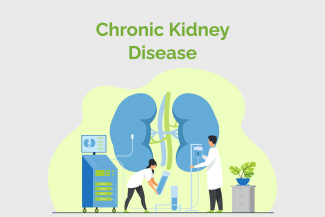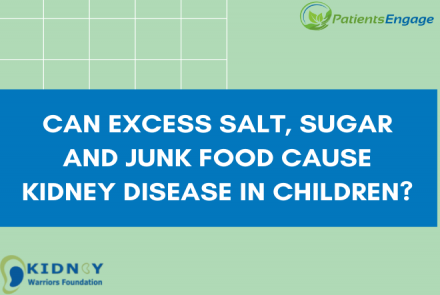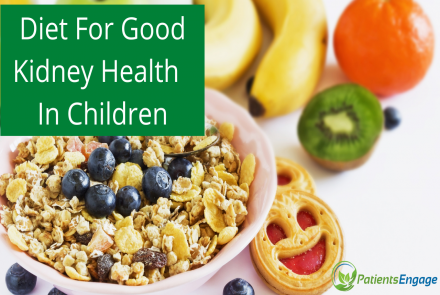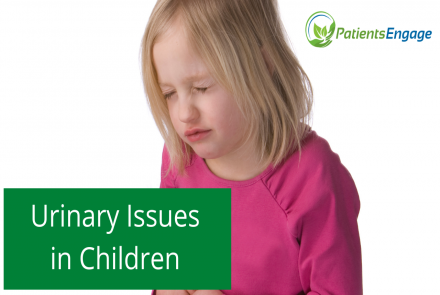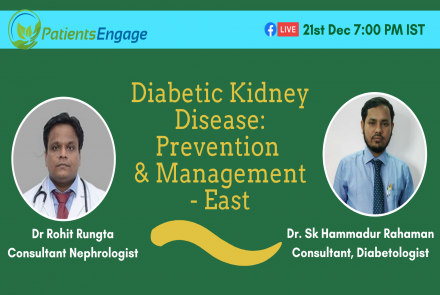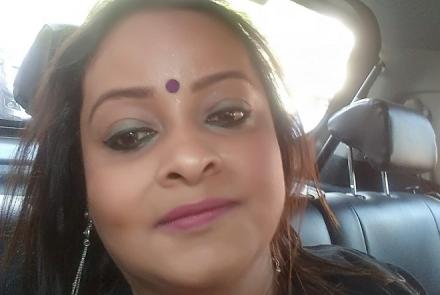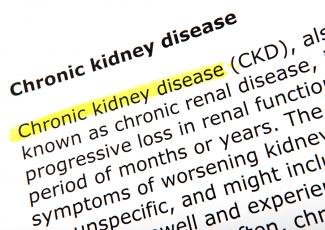
Symptoms of Chronic Kidney Disease
Initially there are no specific symptoms and Chronic Kidney Disease is generally only detected as an increase in serum creatinine or protein in the urine. As kidney function decreases, you may have the following symptoms of CKD:
- Feel more tired and have less energy
- Have trouble concentrating
- Have poor appetite
- Have trouble sleeping
- Have muscle cramping at night
- Have swollen feet and ankles
- Have puffiness around your eyes, especially in the morning
- Have dry, itchy skin that sheds as a white powdery material. This is uremic frost.
- Need to urinate more often, especially at night.
Chronic Kidney Disease may cause the following:
Increased blood pressure: This is due to fluid overload and production of vasoactive hormones created by the kidney via the RAS (renin-angiotensin system), increasing the risk of developing hypertension and/or suffering from congestive heart failure.
Accumulation of urea: This leads to azotemia (high levels of nitrogen containing compounds) and ultimately uremia (symptoms ranging from lethargy to pericarditis and encephalopathy, a brain disorder). Urea is excreted by sweating and crystallises on skin (uremic frost).
Hyperkalemia: Potassium accumulates in the blood with a range of symptoms including malaise and potentially fatal cardiac arrhythmias. Hyperkalemia usually does not develop until GFR falls to less than 20-25 mL/min/1.73 m2 at which point the kidneys have decreased ability to excrete potassium.
Erythropoietin synthesis is decreased: Erythropoietin is a hormone produced by the kidney that stimulates the production of red blood cells. Without enough erythropoietin, the patient suffers from anaemia and poor oxygenation.
Fluid volume overload: Symptoms may range from mild edema (swelling caused by excessive fluid retention in the body's tissues) to life-threatening pulmonary edema (fluid accumulation in the lungs).
Hyperphosphatemia: This occurs due to reduced phosphate excretion, which follows the decrease in glomerular filtration. Hyperphosphatemia is associated with increased cardiovascular risk, being a direct stimulus to vascular calcification.
Hypocalcemia: This means abnormally low level of serum calcium in the blood. This occurs mainly due to Vitamin D deficiency.
Hypoparathyroidism: This occurs due to decreased synthesis of the parathyroid hormone. This can lead to low levels of calcium, causing muscle cramps.
Metabolic acidosis: This occurs due to accumulation of sulfates, phosphates, uric acid etc that the kidneys cannot expel. This can cause the patient to have palpitations, chest, pains, nausea etc.
Iron deficiency anaemia: This increases in prevalence as kidney function decreases, and is especially prevalent in those requiring haemodialysis, which is the most common treatment for advanced and permanent kidney failure. It is multifactoral in cause but includes increased inflammation, reduction in erythropoietin, hyperuricemia (high level of uric acid) leading to bone marrow suppression.
Accelerated atherosclerosis: This is narrowing of the blood vessels with CKD patients who more likely to develop cardiovascular disease than the general population with significantly worse prognosis.
Sexual dysfunction: This is very common in both men and women with chronic kidney disease. A majority of men have reduced sex drive, difficulty obtaining an erection and reaching orgasm, and the problems get worse with age. A majority of women have trouble with sexual arousal and painful periods.

